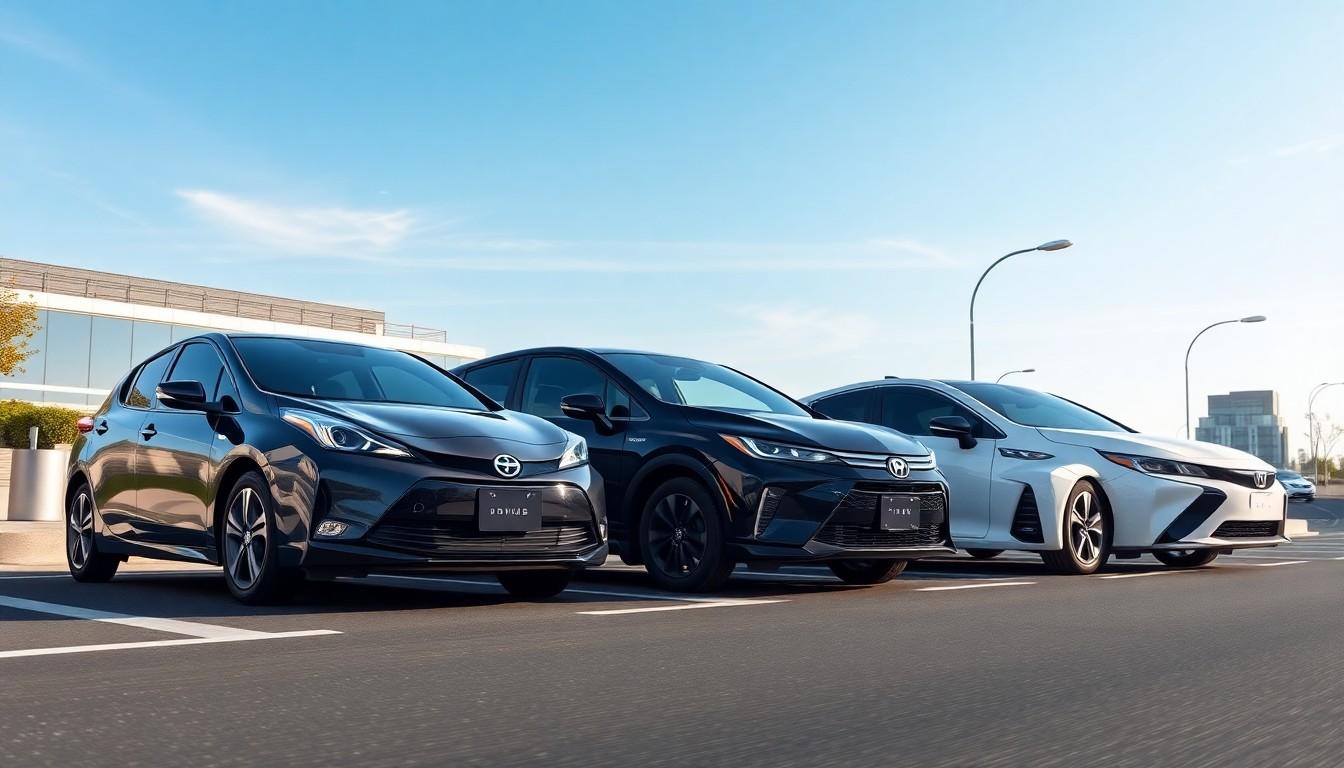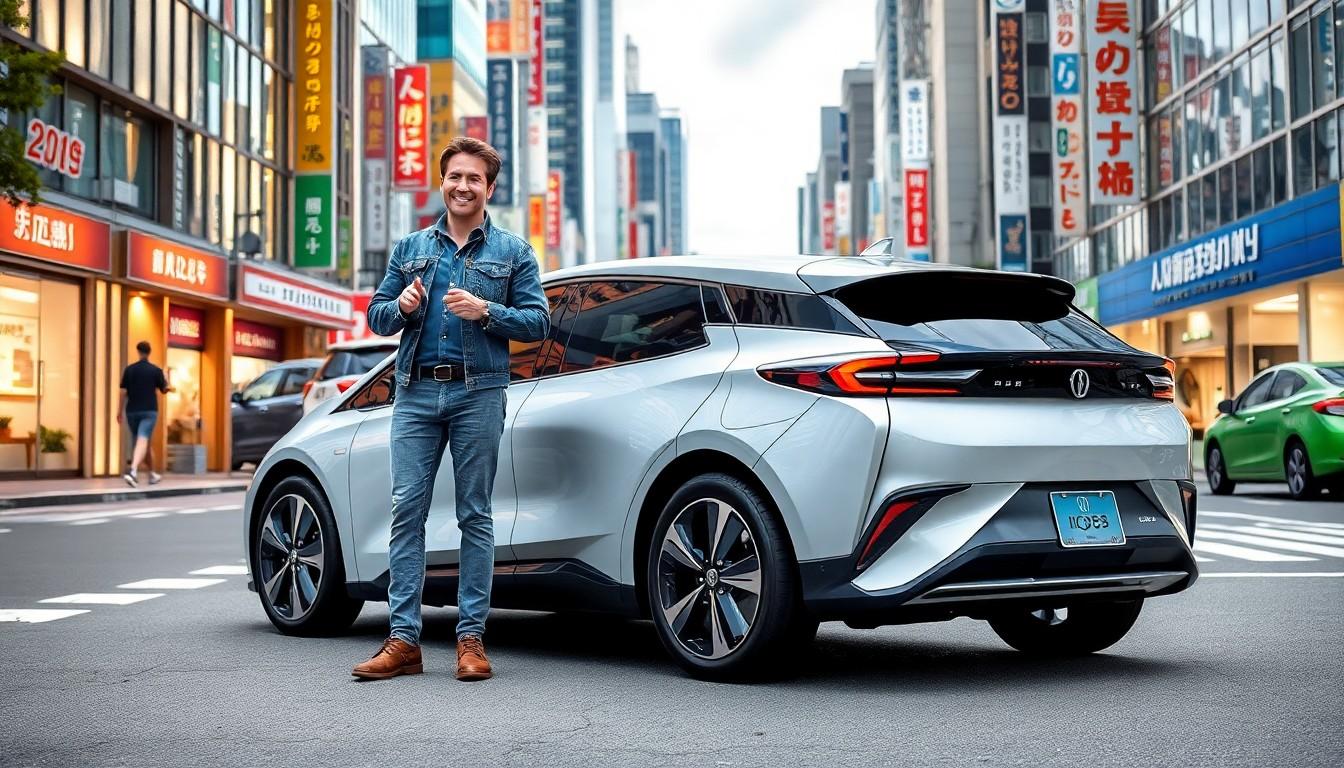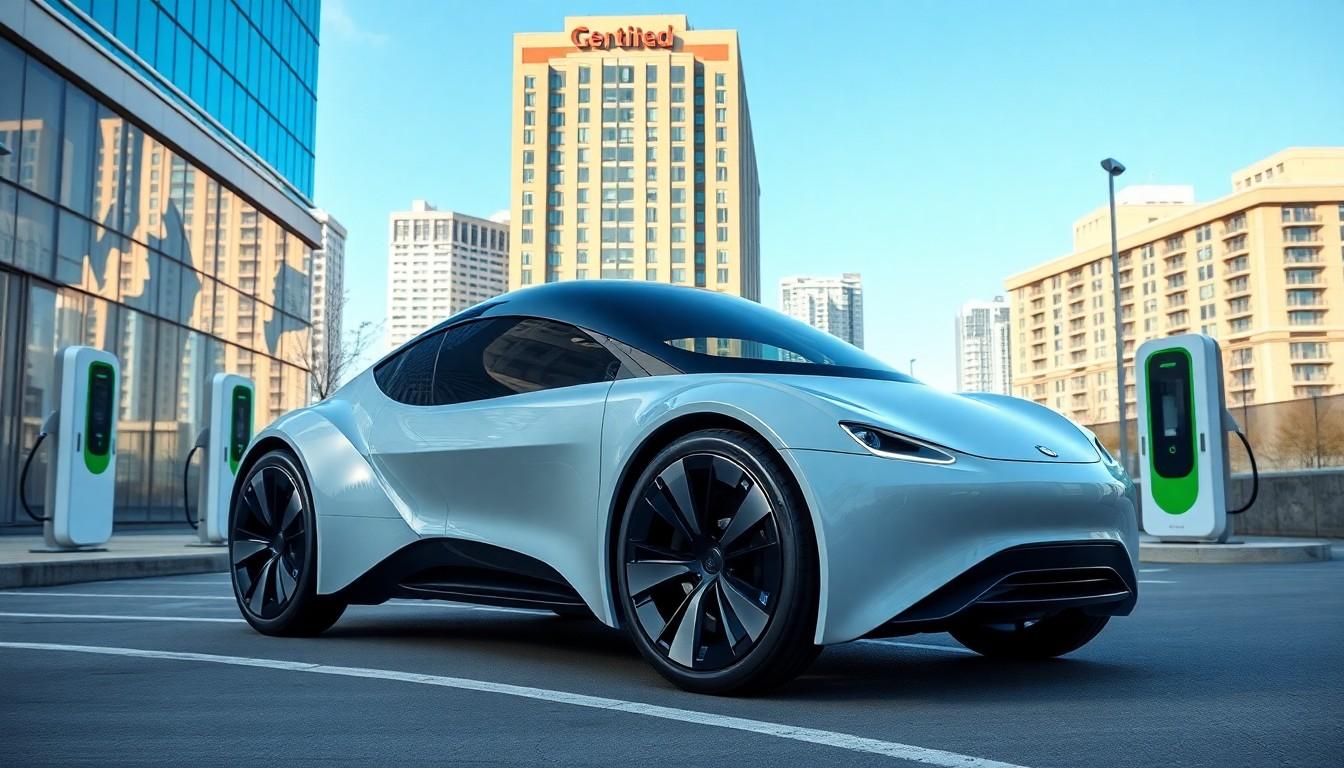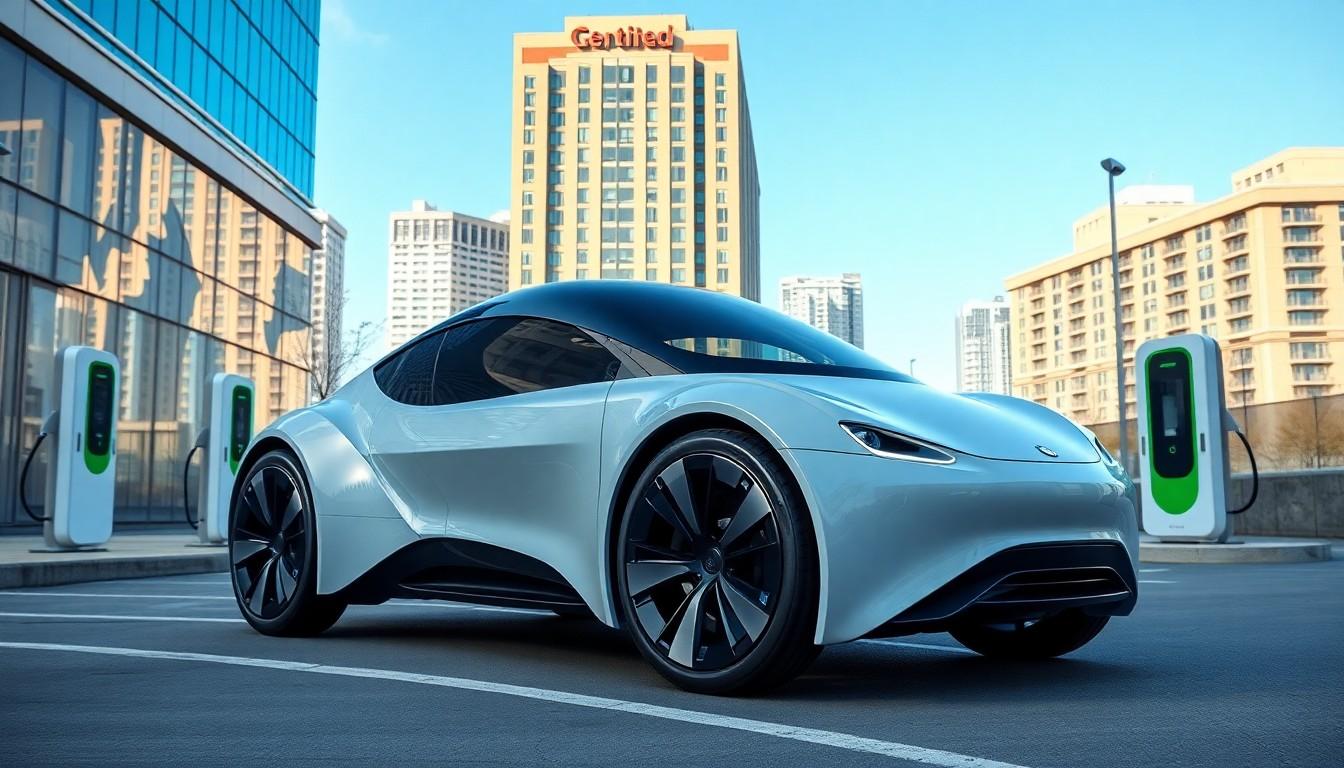In a world where electric vehicles are taking over faster than a cat meme goes viral, Japan is cruising ahead with its innovative designs and cutting-edge technology. Think sushi rolls but for cars—these electric beauties blend efficiency with style, making them the ultimate catch for eco-conscious drivers.
Table of Contents
ToggleOverview of Japanese Electric Vehicles
Japanese electric vehicles (EVs) showcase advanced technology that prioritizes sustainability. Major manufacturers such as Nissan, Toyota, and Honda lead the market with innovative models. A notable example is the Nissan Leaf, which has sold over 500,000 units globally since its launch in 2010. This model exemplifies Japan’s commitment to eco-friendly transportation.
The Toyota Prius Prime offers another perspective on hybrid technology, blending electric power with a gasoline engine. This adaptability appeals to a wide range of consumers. Honda’s Clarity series presents various options, including electric and plug-in hybrid versions, catering to diverse driver needs.
Battery technology in Japanese EVs has also progressed significantly. Mitsubishi’s i-MiEV was one of the first mass-produced electric vehicles, paving the way for future innovations. Companies invest heavily in research and development to enhance battery efficiency and extend range.
Supporting infrastructure for charging stations continues to expand throughout Japan. As of 2023, there are over 30,000 charging points nationwide, making it easier for drivers to take advantage of electric options. Government incentives further encourage consumers and businesses to transition to electric vehicles.
Japanese automakers are also exploring partnerships with tech companies to integrate digital solutions into their vehicles. Features such as advanced navigation systems and safety technologies enhance user experience. Overall, Japanese electric vehicles represent a growing sector that combines cutting-edge engineering with environmental awareness, aligning with global trends toward sustainability.
Key Players in the Japanese EV Market

Japan boasts a dynamic electric vehicle market, with established manufacturers and new entrants redefining transportation. Major automakers lead the charge in innovation and sustainability.
Major Manufacturers
Nissan, Toyota, and Honda stand out as leaders in the Japanese EV market. Nissan’s Leaf, a best-seller since 2010, has sold over 500,000 units worldwide. Toyota’s Prius Prime combines electric and gasoline power, appealing to drivers seeking flexibility. Honda’s Clarity series presents diverse options, including electric vehicles and plug-in hybrids, catering to varying preferences. Each manufacturer invests in battery technology advancements and infrastructure, supporting the growing demand for electric vehicles in Japan. Collectively, these companies shape the future of eco-friendly transportation.
Emerging Brands
Emerging brands are making significant inroads in the Japanese electric vehicle sector. Companies like Mitsubishi, known for the i-MiEV, were early pioneers, setting the stage for innovation. Startups such as Kintetsu Group and Gachaco are developing unique EV solutions tailored to urban mobility and last-mile transport. Additionally, manufacturers like Rivian are exploring partnerships to enhance technology integration. These emerging players complement established brands by introducing fresh perspectives and novel designs, driving further growth in the market. Their contributions reflect a vibrant landscape eager to embrace sustainable solutions.
Technology and Innovation in Japanese EVs
Japanese electric vehicles showcase cutting-edge advancements in technology, emphasizing both efficiency and user experience. Major manufacturers continuously push the boundaries of innovation.
Battery Technology
Significant strides in battery technology mark the progress of Japanese EVs. Manufacturers invest heavily in enhancing lithium-ion batteries, leading to improved energy density and reduced charging times. Nissan, for example, has adopted a solid-state battery approach that could enhance range and safety, with projections suggesting a 500-mile range in future models. Companies like Toyota are also developing hydrogen fuel cell technology, further diversifying energy sources for electric mobility. As of 2023, Japan boasts over 30,000 charging stations, easing the transition to electric vehicles and supporting widespread adoption.
Autonomous Driving Features
Autonomous driving features are rapidly advancing in Japanese electric vehicles. Companies prioritize safety and convenience, integrating systems like Toyota’s Safety Sense and Nissan’s ProPILOT Assist. Such features include adaptive cruise control, lane-keeping assistance, and automatic emergency braking, enhancing the driving experience. Additionally, collaboration with tech firms accelerates the development of smartphone integration, voice recognition, and advanced navigation systems. By offering seamless connectivity and autonomous capabilities, Japanese EVs cater to the evolving expectations of modern drivers.
Environmental Impact of Japanese Electric Vehicles
Japanese electric vehicles contribute significantly to sustainability. They offer a compelling alternative to conventional gasoline-powered cars, effectively reducing emissions on the roads.
Reducing Carbon Footprint
Japanese electric vehicles play a vital role in minimizing carbon footprints. The shift from internal combustion engines leads to substantial reductions in greenhouse gas emissions. Nissan Leaf, for instance, avoids producing about 50% fewer carbon emissions compared to traditional vehicles. Advanced battery technology used in these vehicles enhances energy efficiency and reduces reliance on fossil fuels. The focus on producing zero-emission vehicles aligns perfectly with global climate goals, highlighting the commitment of manufacturers to eco-friendly practices.
Sustainability Initiatives
Sustainability initiatives are at the forefront of Japanese automobile companies. Major manufacturers invest heavily in renewable energy to power production facilities. Toyota’s commitment includes using renewable sources to achieve its goal of carbon neutrality by 2050. Partnerships with environmental organizations foster innovations in recycling and materials, promoting a circular economy. Charging infrastructure development also prioritizes sustainability, with numerous stations utilizing solar and wind energy. These initiatives significantly support the widespread adoption of electric mobility while enhancing the overall environmental benefits.
Future Trends in Japanese Electric Vehicles
Japanese electric vehicles are poised for significant growth through 2030 and beyond. Analysts predict the market could reach over 2 million units sold annually by 2025.
Market Predictions
The demand for electric vehicles in Japan is set to escalate due to increasing consumer awareness about sustainability. Manufacturers plan to respond by launching new models that cater to diverse preferences in design and technology. Nissan and Toyota expect to offer more affordable options, maximizing accessibility for a wider audience. Sales figures from 2022 indicate a 30% increase in EV registrations, underscoring the shift towards electric mobility. Projections suggest that by 2030, 40% of all vehicles sold in Japan may be electric, indicating a clear commitment to electrification.
Government Policies and Incentives
Government support plays a crucial role in accelerating the adoption of electric vehicles. Japan has introduced various incentives, including subsidies for EV purchases and tax breaks for manufacturers investing in green technologies. The government aims to increase the number of public charging stations to 100,000 by 2030, facilitating widespread EV use. Regulations incentivize the transition through fuel economy standards, promoting the development of energy-efficient vehicles. Enhanced policies signal a long-term commitment to reducing carbon emissions, aligning with environmental targets. Businesses are encouraged to invest in renewable energy sources to power production facilities, creating a sustainable automotive ecosystem.
Japanese electric vehicles stand at the forefront of innovation and sustainability. With major manufacturers leading the charge and a growing number of models catering to diverse needs, the future looks bright for EVs in Japan. The commitment to enhancing battery technology and expanding charging infrastructure reflects a strong dedication to reducing environmental impact. As consumer awareness continues to rise and government support strengthens, the shift toward electric mobility is not just a trend but a significant movement. Japanese automakers are not only redefining transportation but also paving the way for a greener future, ensuring that electric vehicles will play a crucial role in the automotive landscape for years to come.



